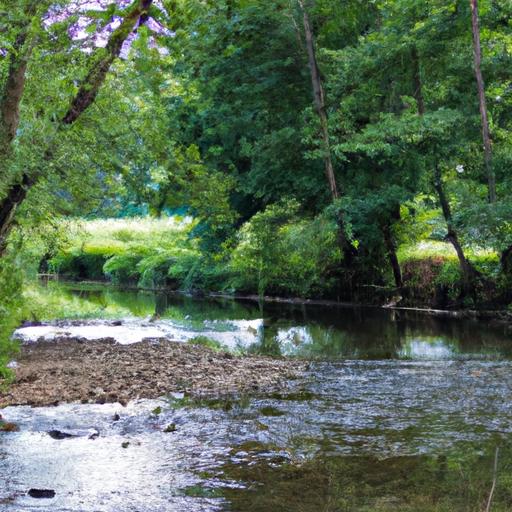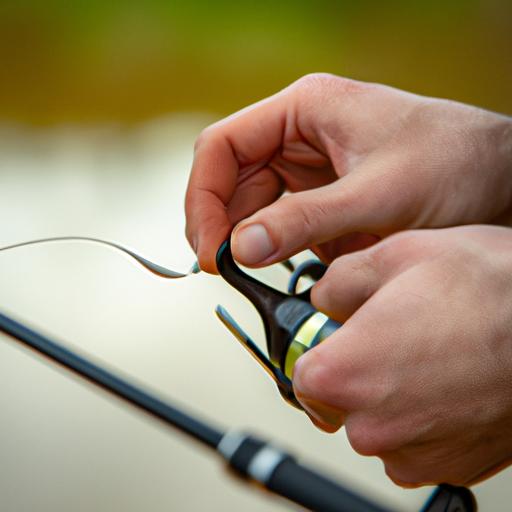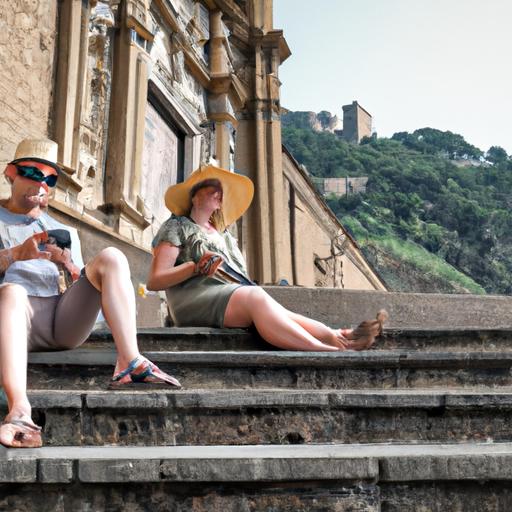Recreation and leisure are two terms often used interchangeably, but do they really mean the same thing? Understanding the distinction between these two concepts is crucial for leading a balanced and fulfilling life. In this article, we will delve into the definitions of recreation and leisure, and why comprehending their dissimilarities is so important.
Recreation refers to activities that are undertaken for enjoyment, entertainment, and refreshment. It encompasses a wide range of pursuits, from sports and games to hobbies and entertainment. When you engage in recreational activities, you do so with the purpose of having fun and rejuvenating yourself. It could be anything from playing a game of basketball with friends, going for a bike ride, or even attending a concert. Recreation is all about finding pleasure in the activities you participate in, allowing you to unwind and recharge.
On the other hand, leisure is more focused on personal fulfillment and relaxation. It is the free time you have at your disposal, where you can engage in activities that bring you joy and contentment. Unlike recreation, leisure is not limited to specific activities or actions. It can be as simple as spending a quiet afternoon reading a book, taking a leisurely stroll in nature, or pursuing a hobby that brings you immense satisfaction. Leisure is about finding solace and tranquility in the moments when you are free to do as you please.
Understanding the difference between recreation and leisure is crucial because it helps us prioritize our time and energy. While recreation is important for bringing joy and entertainment into our lives, leisure provides a deeper level of relaxation and personal fulfillment. By recognizing the distinction, we can strike a balance between engaging in recreational activities and carving out leisure time for ourselves. This balance is essential for maintaining our overall well-being and leading a more meaningful and enjoyable life.
In the following sections, we will delve deeper into the nuances of recreation and leisure, exploring their key differences and the benefits they offer. So, let’s embark on this journey of discovery and unravel the true disparities between recreation and leisure.
Understanding Recreation
Recreation is a term that encompasses a diverse range of activities aimed at providing enjoyment, entertainment, and refreshment. It is an essential part of our lives that allows us to escape from the daily grind and rejuvenate ourselves. Let’s delve into the definition of recreation and explore some examples of recreational activities that can bring joy and excitement into our lives.
Definition of Recreation
Recreation can be defined as any activity that individuals engage in for the purpose of leisure and enjoyment. It is a way to temporarily detach ourselves from work or responsibilities and immerse ourselves in activities that bring us pleasure. Whether it’s playing a sport, going for a swim, or participating in a dance class, recreation is all about finding joy and entertainment in the activities we choose to pursue.
Examples of Recreational Activities
Recreational activities come in various forms and cater to diverse interests. Here are some examples of recreational activities that people commonly engage in:
- Sports and Games: Playing soccer, basketball, tennis, or any other sport that gets your adrenaline pumping and brings out your competitive spirit.
- Outdoor Adventures: Going hiking, camping, rock climbing, or engaging in water sports like kayaking or paddleboarding to embrace the thrill of the great outdoors.
- Creative Pursuits: Engaging in artistic activities such as painting, pottery, photography, or playing a musical instrument to unleash your creative side.
- Social Gatherings: Attending parties, social events, or gathering with friends for a game night to foster connections and enjoy the company of others.
- Entertainment: Watching movies, visiting amusement parks, attending concerts, or going to comedy shows to experience moments of pure entertainment.
Focus on Enjoyment, Entertainment, and Refreshment
The key focus of recreation is to bring enjoyment, entertainment, and refreshment into our lives. It allows us to break free from routine and experience moments of pure joy and excitement. Recreation provides an opportunity to engage in activities that we find pleasurable and invigorating, helping us recharge our batteries and reduce stress levels.
In the next section, we will explore leisure, another facet of our lives that complements recreation but holds a distinct purpose. So, let’s dive into the world of leisure and uncover its unique characteristics and benefits.
Understanding Leisure
Leisure, as mentioned earlier, is a distinct concept from recreation. It is a precious time when we have the freedom to engage in activities that bring us relaxation, joy, and personal fulfillment. Let’s explore the definition of leisure, examples of leisure activities, and the underlying emphasis on relaxation, free time, and personal fulfillment.
Definition of Leisure
Leisure can be defined as the time we have outside of work, obligations, and responsibilities. It is the period when we are free to pursue activities solely for our own enjoyment and self-satisfaction. Unlike recreation, which is often structured and goal-oriented, leisure is more about embracing a sense of freedom and indulging in activities that align with our personal interests and passions.
Examples of Leisure Activities
There is a vast array of activities that fall under the umbrella of leisure. The beauty of leisure is that it can be different for each individual, tailored to their unique preferences and desires. Some common examples of leisure activities include:
-
Reading: Curling up with a good book and immersing yourself in a captivating story can be an incredibly fulfilling leisure activity.
-
Nature Walks: Taking leisurely strolls in scenic surroundings allows you to connect with nature and find solace in its beauty.
-
Arts and Crafts: Engaging in creative pursuits like painting, pottery, or knitting can be both relaxing and personally rewarding.
-
Traveling: Exploring new places, experiencing different cultures, and broadening your horizons through travel is a popular leisure activity for many.
Emphasis on Relaxation, Free Time, and Personal Fulfillment
One of the key aspects of leisure is its emphasis on relaxation. It provides a break from the demands of daily life, allowing us to unwind, recharge, and find inner peace. During leisure time, we have the opportunity to step away from the stressors and obligations that weigh us down and instead focus on activities that bring us joy and contentment.
Moreover, leisure is characterized by the availability of free time. It is during these moments that we can truly dedicate ourselves to activities that resonate with our passions and interests. By prioritizing leisure, we can reclaim our time and ensure that we are nurturing our own well-being and personal growth.
Ultimately, leisure is about personal fulfillment. It is about engaging in activities that align with our values, interests, and desires, and that bring us a sense of deep satisfaction. By embracing leisure, we can cultivate a more meaningful and fulfilling life, where we prioritize our own happiness and overall well-being.
In the upcoming sections, we will further explore the key differences between recreation and leisure, shedding light on their purposes, time constraints, involvement, financial implications, stress levels, and the benefits they offer. So, let’s continue our exploration and uncover the intriguing disparities between these two concepts.
Key Differences between Recreation and Leisure
When it comes to recreation and leisure, there are several key differences that set them apart. Understanding these distinctions can help us make more informed choices about how we spend our time and energy. Let’s explore these disparities in more detail:
Purpose: Recreation for entertainment, Leisure for personal fulfillment
Recreation primarily serves the purpose of entertainment and enjoyment. It involves activities that bring pleasure and allow us to have fun. Whether it’s playing a sport, watching a movie, or attending a concert, recreation aims to provide entertainment and create memorable experiences. On the other hand, leisure focuses more on personal fulfillment. It involves engaging in activities that bring us a sense of satisfaction, contentment, and inner peace. It could be pursuing a hobby, spending time in nature, or simply engaging in self-care activities. Leisure activities are driven by our own desires and interests, and they contribute to our overall well-being and happiness.
Time Constraints: Recreation for shorter periods, Leisure for extended periods
Recreation is often associated with shorter durations of time. It could be a quick game of tennis, a movie night, or a weekend getaway. These activities are usually planned and executed within a limited timeframe and provide a break from our daily routines. On the other hand, leisure allows us to immerse ourselves in activities for extended periods. It’s about having the freedom and flexibility to indulge in pursuits that bring us joy and fulfillment without the constraints of time. Whether it’s taking a sabbatical, going on a long vacation, or dedicating a whole day to a hobby, leisure provides us with the luxury of time to fully immerse ourselves in what we love.
Involvement: Recreation is often active, Leisure can be passive or active
Recreation activities often require active participation. They involve physical or mental engagement, such as playing sports, solving puzzles, or engaging in interactive games. Recreation activities are designed to keep us physically and mentally stimulated, offering a break from our daily routines. In contrast, leisure can be either passive or active. Passive leisure activities involve relaxation and rejuvenation, such as reading a book, meditating, or enjoying a spa day. Active leisure activities, on the other hand, involve actively pursuing interests like painting, gardening, or learning a new skill. Leisure allows us the freedom to choose between active engagement or passive rejuvenation, depending on our preferences and needs.
Financial Implications: Recreation may involve costs, Leisure can be cost-free
Recreation activities often come with financial implications. Whether it’s purchasing equipment, paying for tickets, or joining a club, recreation can involve expenses. While these costs vary depending on the activity, it’s important to consider the financial aspect when engaging in recreational pursuits. On the other hand, leisure can be cost-free. Many leisure activities can be pursued without spending a dime, such as taking a walk in the park, spending time with loved ones, or practicing mindfulness. Leisure offers us the opportunity to find fulfillment and joy without the burden of financial constraints.
Stress Levels: Recreation helps reduce stress, Leisure provides deep relaxation
Recreation activities are known for their stress-relieving benefits. Engaging in recreational pursuits helps us unwind, release tension, and recharge. Whether it’s through physical exercise, social interactions, or simply engaging in activities we enjoy, recreation can be a powerful tool for alleviating stress and promoting overall well-being. On the other hand, leisure provides us with deep relaxation. It allows us to slow down, disconnect from the demands of daily life, and find inner peace. Whether it’s through solitude, self-reflection, or engaging in activities that bring us joy, leisure provides us with a much-needed respite from the pressures of the modern world.
Understanding these key differences between recreation and leisure can help us make conscious choices about how we spend our time and prioritize our well-being. By recognizing the distinct purposes, time constraints, levels of involvement, financial implications, and stress-relieving benefits of recreation and leisure, we can create a harmonious balance in our lives that promotes both enjoyment and personal fulfillment. So, let’s embrace the unique qualities of recreation and leisure, and make the most of the opportunities they offer us.
Benefits of Recreation and Leisure
Recreation and leisure activities offer a multitude of benefits that contribute to our overall well-being. Let’s explore some of these advantages in more detail:
Physical Health Benefits of Recreation
Engaging in recreational activities provides numerous physical health benefits. Whether it’s playing a sport, going for a swim, or taking a dance class, recreational activities get our bodies moving and promote physical fitness. Regular participation in recreational activities can help improve cardiovascular health, increase stamina and strength, and enhance overall physical endurance. These activities also aid in maintaining a healthy weight and reducing the risk of chronic illnesses such as heart disease, diabetes, and obesity. Additionally, recreational activities often involve social interaction, fostering a sense of community and support that further enhances our physical well-being.
Mental Health Benefits of Recreation
Recreation has a significant impact on our mental health and emotional well-being. Engaging in recreational activities provides an outlet for stress relief and helps alleviate symptoms of anxiety and depression. When we participate in activities that bring us joy and fulfillment, our brains release endorphins, which are natural mood boosters. Recreation also offers an opportunity to disconnect from the demands of daily life and immerse ourselves in enjoyable experiences, allowing our minds to relax and recharge. Furthermore, recreational activities often involve social interaction, fostering social connections and reducing feelings of loneliness and isolation.
Psychological Benefits of Leisure
Leisure activities, characterized by personal fulfillment and relaxation, have profound psychological benefits. Engaging in leisure activities allows us to explore our passions, interests, and creative outlets, promoting self-discovery and personal growth. It provides a sense of autonomy and control over our free time, leading to increased satisfaction and a higher sense of well-being. Leisure activities also promote mindfulness and present-moment awareness, allowing us to fully immerse ourselves in the experience and find respite from the stresses of life. By engaging in activities that bring us inner peace and contentment, we can improve our overall psychological health and enhance our quality of life.
Importance of Balancing Recreation and Leisure in a Healthy Lifestyle
Finding a balance between recreation and leisure is crucial for maintaining a healthy lifestyle. While recreation offers enjoyment, entertainment, and physical benefits, leisure provides personal fulfillment, relaxation, and psychological well-being. It is essential to allocate time for both in our lives to ensure that we address our physical, mental, and emotional needs. By striking a harmonious balance, we can experience holistic well-being, enhanced productivity, and a greater sense of fulfillment in our daily lives.
In the next section, we will conclude our exploration by summarizing the main differences between recreation and leisure and emphasizing the significance of incorporating both into our lives.
Conclusion
In conclusion, understanding the difference between recreation and leisure is vital for leading a well-rounded and fulfilling life. While recreation focuses on entertainment, enjoyment, and refreshment, leisure emphasizes personal fulfillment and relaxation. By recognizing the dissimilarities between these two concepts, we can better prioritize our time and energy to ensure a balanced lifestyle.
Recreation offers opportunities for fun and rejuvenation through engaging in various activities such as sports, hobbies, and entertainment. It allows us to let loose, unwind, and find enjoyment in our leisure time. On the other hand, leisure provides a deeper level of relaxation and personal satisfaction. It is a time for self-reflection, pursuing hobbies, and finding solace in the moments of freedom.
Balancing recreation and leisure is crucial for our overall well-being. Engaging in recreational activities brings joy, reduces stress, and enhances our physical and mental health. On the other hand, prioritizing leisure time allows us to recharge, reflect, and find inner fulfillment. By striking a balance between the two, we can lead a more meaningful and enjoyable life.
Incorporating both recreation and leisure into our lives is essential for maintaining a healthy lifestyle. It is important to make time for recreational activities that bring us joy and entertainment, as well as carve out leisure time for personal fulfillment and relaxation. By finding this balance, we can ensure that we are taking care of our physical, mental, and emotional well-being.
So, next time you find yourself contemplating whether to engage in recreation or leisure, remember the distinction. Seek out activities that bring you joy and entertainment, but also make time for moments of relaxation and personal fulfillment. By embracing both recreation and leisure, you can truly live a life that is rich in experiences and contentment.
Now, armed with the knowledge of the difference between recreation and leisure, go forth and create a life that is full of joy, fulfillment, and balance.




